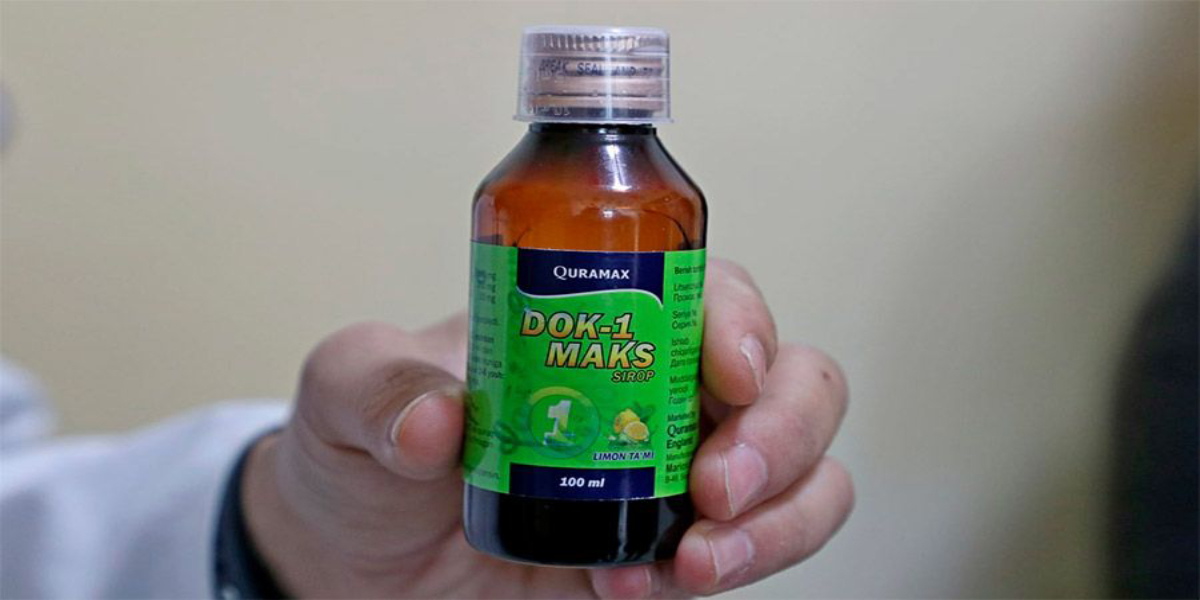Marion Biotech's cough syrup Dok-1 was linked with the death of 18 children in Uzbekistan. On March 3, the Noida Police arrested three employees of Marion Biotech.

Marion Biotech is based out of Noida in Uttar Pradesh. (Supplied)
The manufacturing licence of Noida-based pharmaceutical firm Marion Biotech has been cancelled by the Uttar Pradesh drug authorities.
Marion Biotech’s cough syrup Dok-1 was linked to the death of 18 children in Uzbekistan. The incident, which occurred last December, prompted central and state drug authorities in India to launch a probe into the matter.
“The firm’s licence was under suspension since January, after which a detailed inquiry was initiated. Now the licence of the firm has been cancelled by the Uttar Pradesh Drugs Controlling and Licensing Authority. The firm can no longer manufacture the syrup,” a government official said in a statement.
On 3 March, the Noida police arrested three employees of Marion Biotech from its office in Sector 67 while a lookout notice was issued for two of its directors after an FIR was lodged against all of them, the official said.
The FIR had come in the wake of investigations finding that samples of Marion Biotech’s drugs were “adulterated” and “not of standard quality.”
The samples were sent to the government’s regional drug testing laboratory in Chandigarh and 22 of them were found to be ‘not of standard quality’ (adulterated and spurious), according to the FIR.
The FIR has been lodged under Indian Penal Code sections 274 (adulteration of drugs), 275 (sale of adulterated drugs), 276 (sale of drug as a different drug or medical preparation) as well as under Section 17 (misbranded drugs) and related violations of the Drugs and Cosmetics Act, 1940.
The Uzbekistan government on 28 December, 2022, said 18 children in the country died due to the side effects of a cough syrup produced by Marion Biotech.
“We reported the occurrence of side effects in children as a result of taking the drug Dok-1 Max in the city of Samarkand,” said the Ministry of Health of Uzbekistan in a statement back then.
“To date, 18 out of 21 children with acute respiratory disease have died as a result of taking Doc-1 Max syrup,” it added.
The ministry also said that tablets and the syrup Dok-1 Max manufactured by Marion Biotech Private Limited in our country were registered in 2012 and went on sale the same year.
All manufacturing activities at Marion Biotech’s Noida unit have been stopped in view of reports of contamination of its cough syrup.
Marion Biotech does not sell Dok-1 Max in India, and its only export has been to Uzbekistan, an Uttar Pradesh government official said during the aforementioned inspection.
According to Union Health Minister Mansukh Mandaviya, the CDSCO has been in regular contact with the national drug regulator of Uzbekistan regarding the matter since 27 December.
The production licence of the firm was suspended in January after inspections at its site by the central and state drug authorities in the wake of the controversy.
On January 12, the World Health Organization (WHO) had also issued a “medical product alert”, referring to two substandard (contaminated) products, identified in Uzbekistan and reported to it on December 22, 2022.
“The two products are Ambronol syrup and DOK-1 Max syrup. The stated manufacturer of both products is MARION BIOTECH PVT LTD, (Uttar Pradesh, India). To date, the stated manufacturer has not provided guarantees to WHO on the safety and quality of these products,” the WHO had stated then.
“Laboratory analysis of samples of both products, undertaken by national quality control laboratories of the Ministry of Health of the Republic of Uzbekistan found both products contained unacceptable amounts of diethylene glycol and/or ethylene glycol as contaminants,” it had noted

Apr 25, 2024

Apr 24, 2024

Apr 24, 2024

Apr 23, 2024

Apr 23, 2024

Apr 23, 2024